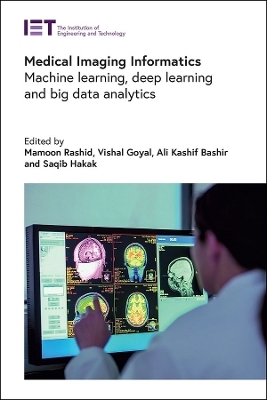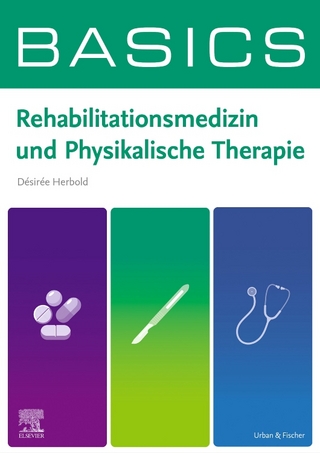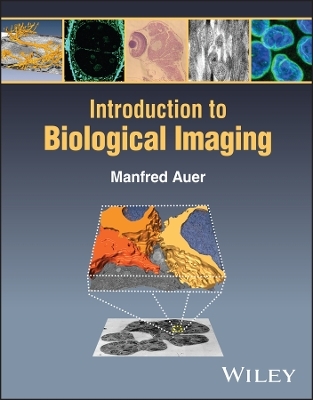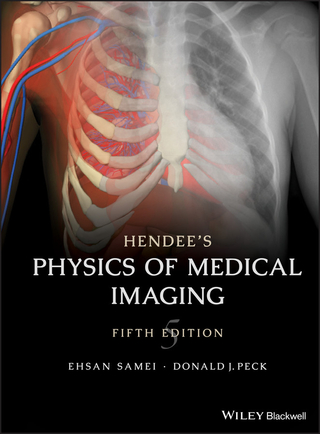
Medical Imaging Informatics
Institution of Engineering and Technology (Verlag)
978-1-83953-743-1 (ISBN)
Medical imaging informatics play an important role in the effectiveness of present-day healthcare systems. Advancement of artificial intelligence, big data analytics, and internet of things technologies contribute greatly to various healthcare applications. Artificial intelligence techniques are contributing to improvements with traditionally human-based systems and ensuring that the accuracy of prediction and diagnosis is being continually enhanced. The development of reliable and accurate healthcare models is becoming ever more possible with the help of machine learning and deep learning technologies. Artificial intelligence has the power to solve many complex problems in medical imaging and is a technology that will help to design the future of many healthcare systems.
This edited book highlights and addresses various issues in medical imaging and provides viable solutions utilising artificial intelligence and big data tools. This book discusses techniques, algorithms, and tools which help build and develop research practices, platforms, and applications in medical image informatics.
Medical image enhancement, big data analytics and artificial intelligence models are discussed with relation to applications in the detection of cancer, autism, allergies and diabetes. The design and development of internet of medical things and virtual reality tools for mental health disorders are also explored.
This book is suitable reading for researchers and scientists, in both academia and industry, working in computer science and engineering, machine learning, image processing, and healthcare technologies. Those in aligned professions, such as healthcare practitioners, administrators, designers and developers may also find the subject matter of interest.
Mamoon Rashid is currently working as an associate professor in the Department of Computer Engineering, Faculty of Science and Technology, Vishwakarma University, Pune, India. He also holds a position of director, Research Center of Excellence for Health Informatics, Vishwakarma University, Pune, India. He received his Ph.D. from the Department of Computer Science and Engineering, Punjabi University, Patiala, India, in the field of Medical Imaging Informatics. He has published 100+ papers indexed in SCI/SCIE journals and conferences of international repute. He also edited a book titled Artificial Intelligence for Innovative Healthcare Informatics, Springer, in 2022. He served as a lead guest editor for many journals indexing in Web of Science. His research interests include health informatic, medical imaging, and image processing. Vishal Goyal is a full professor in the Department of Computer Science, Punjabi University Patiala, India, with teaching and research experience of 21+ years. He is also holding positions of co-coordinator for "Center for Artificial Intelligence and Data Science," coordinator for "Research Centre for technology Development for Differently Abled Persons," and director of the Centre for E-Learning and Teaching Excellence, Punjabi University, India. He is an approved consultant for AIU in consulting universities and colleges for accreditation rankings of NAAC, NIRF, NBA, and international linkages. He has been awarded the Young Scientist Award in 2015 by the Punjab Academy of Sciences, and two times State Award by the Government of Punjab, India. He has published 100+ research publications in various journals and conferences of national and international repute. He completed his grant projects with 10 million Indian rupees funded by various ministries of Govt. of India and has a number of projects in progress. His research areas are natural language processing, technology development for differently abled people, and machine learning. Ali Kashif Bashir is a reader in the Department of Computing and Mathematics, Manchester Metropolitan University, UK. He is the leader of Future Networks Lab and head of Advanced Cybersecurity Testbed. He is supervising/co-supervising a number of Ph.D. students, Postdocs, and research associates. Along with his students and colleagues, he has published over 250 high-impact articles in top venues. He has obtained over £4 million external funding from UK, South Korean, Japanese, European, Asian, and Middle Eastern agencies. He is also Co-I of GM AI and GM Cyber Foundry, each having £6 million funding. He is a senior member of IEEE, a member of 10+ IEEE technical societies, and a distinguished speaker of ACM. He has chaired several international conferences and workshops and has delivered over 40 invited and keynote talks across the globe. He also enjoys several honorary and adjunct professor positions in many countries like China, Canada, Lebanon, UAE, India, and Pakistan. He is serving as an editor-in-chief of IEEE Technology, Policy and Ethics and Journal of Autonomous Intelligence, and an editor of over 10 international journals including Scientific Reports, Nature, and IEEE Transactions on Network Science and Engineering. Saqib Hakak is an assistant professor at the Canadian Institute for Cybersecurity, University of New Brunswick, Canada. He has 6+ years of industrial and academic experience. He has received a number of Gold/Silver awards in international innovation competitions and is serving as a technical committee member/reviewer of several reputed conference/journal venues. He has published 90+ papers in journals of repute. His research interests include risk management, fake news detection using AI, security and privacy concerns in IoE, applications of federated learning in IoT, and blockchain technology.
Section 1: Medical image analysis using artificial intelligence
Chapter 1: Intervention of medical images for disease prediction
Chapter 2: Breast cancer detection in pathological imaging using deep learning methods
Chapter 3: Detection of autism spectrum disorder using artificial intelligence
Chapter 4: Lossless medical image compression and noise removal using deep learning models
Chapter 5: Prediction of diabetes using voting classification algorithms
Chapter 6: Use of deep learning approaches for the prediction of diseases from medical images
Chapter 7: Deep learning approach for the prediction of diseases in medical images
Chapter 8: Detection of food allergy using deep learning
Section 2: Use of AI-enabled IoT in healthcare
Chapter 9: Design and development of Internet of Things and artificial intelligence-based medical imaging system
Chapter 10: Internet of Things and medical imaging AI systems
Chapter 11: Role of artificial intelligence in medical IoT devices
Section 3: Applications of artificial intelligence in healthcare
Chapter 12: Internet automation indulgence of virtual reality in psychiatric health disorder
Chapter 13: Role of big data analytics in healthcare systems
| Erscheinungsdatum | 28.12.2023 |
|---|---|
| Reihe/Serie | Healthcare Technologies |
| Verlagsort | Stevenage |
| Sprache | englisch |
| Maße | 156 x 234 mm |
| Themenwelt | Mathematik / Informatik ► Informatik |
| Medizin / Pharmazie ► Medizinische Fachgebiete ► Radiologie / Bildgebende Verfahren | |
| Technik | |
| ISBN-10 | 1-83953-743-4 / 1839537434 |
| ISBN-13 | 978-1-83953-743-1 / 9781839537431 |
| Zustand | Neuware |
| Informationen gemäß Produktsicherheitsverordnung (GPSR) | |
| Haben Sie eine Frage zum Produkt? |
aus dem Bereich


